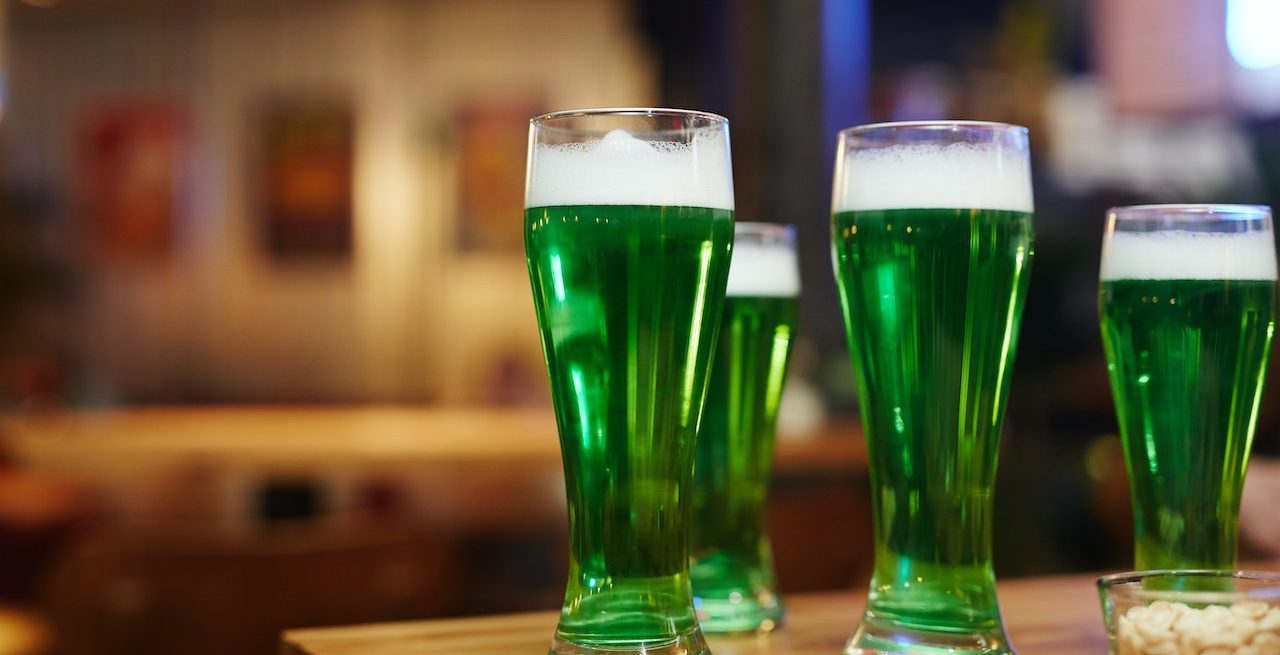Keeping a Safe Bar Environment on Busy Holidays
4 Min Read By Society Insurance
The St. Patrick’s Day drinking statistics are sobering. Over the St. Patrick’s Day weekend in 2019, 63 percent of car-related fatalities involved drunk drivers, and in 2018, 33 percent of pedestrians killed in car crashes over the holiday were intoxicated with a BAC over 0.08. Spirit sales are 153 percent higher than usual over the holiday weekend, and it’s the number one beer drinking holiday.
Though businesses in the hospitality industry provide a fun and relaxed atmosphere for clientele to briefly escape their everyday routines, it’s also their responsibility to keep their patrons safe. Excessive drinking can lead to verbal altercations on-site, physical harm to oneself and others, and widespread issues once a patron has left an establishment.
Society Insurance, which provides coverage to the hospitality industry, has put together four tips on how restaurants and bars can help create a safer environment on St. Patrick’s Day and year-round.
Understand Your State’s Dram Laws
Laws regarding the sale and consumption of alcohol are not established by the federal government. Local authorities establish and enforce these laws, so the specific guidelines as to who can sell, purchase and consume alcohol and under what conditions (and the punishments for violation) vary widely across jurisdictions. Failure to manage the commercial sale of alcohol could threaten the success of a business due to increased liability exposure, both criminal and civil.
There are a variety of laws and regulations that could impact a business in relation to service of alcoholic beverages. One such law is a Dram Shop Act that may allow third parties or others to recover for damages caused by alleged overservice of alcohol. Currently 43 states and the District of Columbia have some sort of dram shop law in effect, varying in scope.Those states without dram shop laws are Delaware, Kansas, Louisiana, Maryland, Nebraska, Nevada, South Dakota and Virginia. In addition to Dram, some states allow for the criminal prosecution of servers in cases where the alleged overservice caused damage to property or injury to people. Failure to follow the appropriate laws and regulations for your business could result in fines, jail, license revocation and/or bad publicity.
Don’t Be Afraid to Refuse Service
Make sure your bartenders know when to stop serving patrons. Potential signs of an intoxicated person include loud or agitated speech, ordering drinks rapidly, slurred speech, stumbling, spilling drinks, appearing drowsy, aggressive behavior and/or blood shot eyes. Don’t cut anyone off in front of others if you can help it. The manager should request the person to accompany him or her off to the side or a somewhat quieter place to break the news (but never alone. Take a buddy). Keep it calm and state the facts. Do not be accusatory or aggressive. “I think you should call it a night. We are not serving you anymore. Do you have a ride, or can I call you a car?” Instruct your bartenders to not serve the patron anymore. Don’t negotiate.
Double Down on Conflict Resolution
Each patron who enters your establishment brings different ideas, interpersonal skill sets, prejudices and emotions with them. Add alcohol to the situation and your business is at an increased risk of an incident. Eventually conflict can happen. This can dramatically impact the bottom line for bar owners, which is why conflict resolution training is critical for bar owners and staff.
Recommended conflict resolution techniques include:
1. Capable door staff in place. The door staff is the first point of contact for patrons. They are among the first that have the task of determining if guests are of a proper age to enter and do not show signs of intoxication. They can also monitor for conflicts that may already be developing between customers before they enter. The actions you take at this point can resolve a potential conflict before it ever arrives.
2. Closely monitor alcohol service. Bartenders can help minimize the risk of a conflict developing by monitoring alcohol service using drink counting methods, observing patron physical and cognitive behaviors, pouring accurately measured drinks to avoid over-service, and employing a good cut-off policy.
3. Remain vigilant, especially during peak hours. Security and floor staff see what is happening throughout the operation. They are the eyes and ears of the operation and get the best view of what might be bubbling up throughout the night. This is when good conflict resolution skills can help to step in, de-escalate and manage the situation.
4. Implement comprehensive standard operating procedures and policies. The owner and management team can provide proper training to all staff including conflict resolution skill development training. Don’t overlook implementing good policies and procedures for the staff to act on, such as a strong cut-off policy, effective ID and non-entry policy, patron ejection policy, training and exercise for emergency situations, use of force policies and more. Provide regular training to ensure the staff possesses a clear understanding. Having the proper policies and training in place will help to minimize the impact of a conflict and maximize the effectiveness of everyone’s response when an issue arises.
Obtain Liquor Liability Insurance
It is highly advisable to purchase liquor liability insurance if you operate a business that sells alcohol. It’s no secret that alcohol service creates unique risks and exposure. Liquor liability insurance is critical for costly claims and litigation that arise because of alcohol service and damage or injury caused by an intoxicated person. Even if your bar is not liable in these complicated situations, your legal defense costs can add up quickly.
Every shift, bartenders are faced with decisions to create a welcoming environment, while keeping patrons out of harm’s way. Preparation, good policies and good training help to minimize incidents all year long. By obtaining proper insurance coverage, understanding Dram laws, refusing service when applicable and practicing conflict resolution training, you and your staff will be more empowered to safely address challenges that arise during holidays, sports’ seasons and other celebrations.
This is only a general description of coverages and is not a statement of contract. All coverages and limits are subject to the terms, definitions, exclusions and conditions in the policy. This information does not amend, modify or supplement any insurance policy. Consult the actual policy or your agent for details regarding available coverages. This information is provided as a convenience for informational purposes only. It is provided to assist you in recognizing potential unsafe work problems or conditions and not to establish compliance with any law, rule or regulation. This information does not constitute legal or professional advice. For a legal opinion, please seek legal counsel from a qualified attorney.


